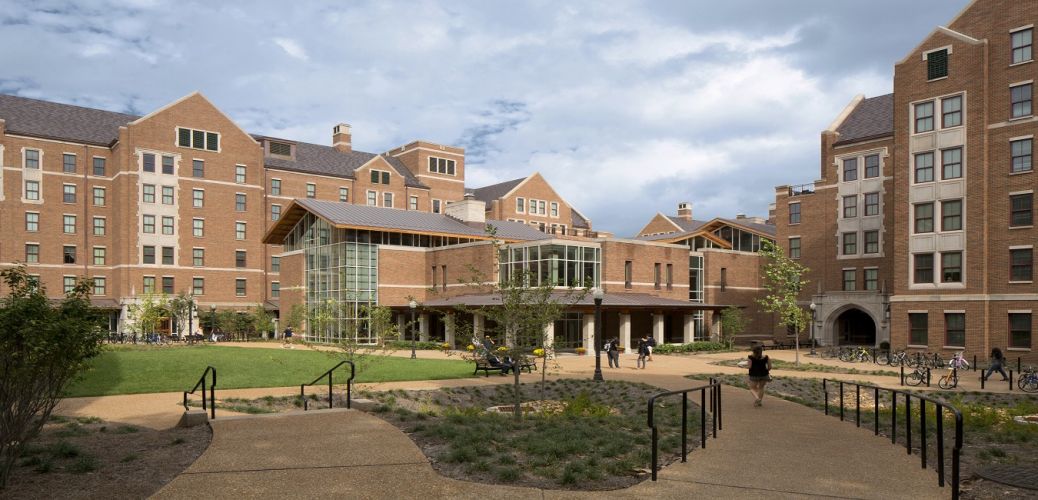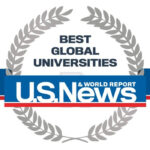Vanderbilt University US News Ranking consistently places the university among the nation’s elite institutions of higher education. This prestigious ranking reflects Vanderbilt’s unwavering commitment to academic excellence, research innovation, and a vibrant campus culture that fosters student growth and success.
The U.S. News & World Report’s National Universities rankings consider a wide range of factors, including academic reputation, faculty resources, student selectivity, graduation rates, and alumni giving. Vanderbilt consistently ranks highly in these categories, showcasing its dedication to providing a transformative educational experience for its students.
Vanderbilt University’s Overall Ranking
Vanderbilt University consistently ranks among the top universities in the United States, solidifying its reputation as a prestigious institution of higher learning. The U.S. News & World Report’s National Universities rankings play a crucial role in shaping public perception and influencing prospective students’ decisions.
Overall Ranking and Significance
In the 2023 U.S. News & World Report’s Best National Universities rankings, Vanderbilt University secured the 14th position. This ranking signifies Vanderbilt’s excellence across various academic disciplines, research endeavors, and student life experiences. The U.S. News & World Report rankings are widely recognized and influential in the higher education landscape, providing a valuable benchmark for comparing institutions.
Comparison with Other Top-Tier Universities
Vanderbilt’s overall ranking places it among the elite universities in the country. It shares a similar standing with other highly regarded institutions, such as:
- University of Pennsylvania (8th): Known for its strong business and engineering programs, the University of Pennsylvania consistently ranks among the top 10.
- Cornell University (16th): Renowned for its agricultural and life sciences, Cornell University offers a diverse range of academic programs.
- Washington University in St. Louis (19th): A leading research institution, Washington University in St. Louis excels in medicine and engineering.
Vanderbilt’s strengths lie in its strong liberal arts tradition, comprehensive academic offerings, and commitment to research. However, it faces competition from institutions with larger endowments and extensive alumni networks.
Academic Reputation and Strengths
Vanderbilt University consistently ranks among the nation’s top universities, renowned for its rigorous academic programs and world-class faculty. This reputation is built on a foundation of excellence across a wide range of disciplines, fostering groundbreaking research and preparing students for successful careers.
Disciplinary Strengths and Research Areas
Vanderbilt University boasts a diverse academic landscape, with particular strengths in several disciplines and research areas.
- Medicine and Health Sciences: Vanderbilt University Medical Center (VUMC) is a leading academic medical center, renowned for its clinical care, research, and education. VUMC is consistently ranked among the top hospitals in the nation by U.S. News & World Report, and its research programs have made significant contributions to advancements in medicine and healthcare.
- Engineering and Technology: The School of Engineering offers innovative programs in areas such as biomedical engineering, computer science, and electrical engineering. Vanderbilt engineers are known for their cutting-edge research and their contributions to solving real-world problems.
- Law: Vanderbilt Law School is consistently ranked among the top law schools in the nation, known for its strong faculty, rigorous curriculum, and commitment to public service. The law school boasts a distinguished alumni network and has a reputation for producing successful legal professionals.
- Education: The Peabody College of Education and Human Development is a leading institution in the field of education, with a long history of preparing educators and researchers. Peabody College is known for its innovative programs and its commitment to improving education for all.
Notable Faculty
Vanderbilt University attracts some of the most distinguished scholars in their respective fields.
- Dr. Charles N. Rice: A Nobel laureate in Physiology or Medicine for his groundbreaking work on the hepatitis C virus. He is a leading researcher in the field of virology and infectious diseases.
- Dr. David R. Williams: A renowned sociologist and public health expert, he is known for his work on the impact of racism and inequality on health and well-being. He has authored several influential books on the subject.
- Professor Brian Wansink: A leading expert in the field of food psychology, he is known for his research on consumer behavior and the factors that influence eating habits. His work has been featured in numerous publications, including the New York Times and the Wall Street Journal.
Top-Ranked Programs
Vanderbilt University consistently ranks among the top universities in the nation for its academic programs.
| Program | National Ranking | Global Ranking |
|---|---|---|
| Medicine | Top 15 | Top 50 |
| Law | Top 20 | Top 100 |
| Engineering | Top 50 | Top 150 |
| Education | Top 10 | Top 50 |
Student Life and Campus Culture
Vanderbilt University’s student body is a vibrant and diverse community, shaping a dynamic campus culture. From its diverse student demographics to its bustling extracurricular activities, Vanderbilt offers a rich and engaging experience for its students.
Student Body Demographics
Vanderbilt boasts a diverse student population, attracting students from across the United States and internationally. The university’s commitment to inclusivity is reflected in its student body demographics, which are representative of various backgrounds, cultures, and perspectives.
- The undergraduate student body comprises approximately 7,000 students, with a significant international student population.
- Vanderbilt’s student body is racially and ethnically diverse, with a significant representation of students from underrepresented minority groups.
- The university also attracts a diverse range of students with varying academic interests, extracurricular activities, and personal backgrounds.
Extracurricular Activities and Student Organizations
Vanderbilt’s campus is alive with a wide array of extracurricular activities and student organizations that cater to diverse interests and passions. From academic clubs to performing arts groups, student-led initiatives to athletic teams, there’s something for everyone.
- The university boasts over 400 student organizations, ranging from academic and professional groups to cultural and social clubs, providing students with opportunities to connect with like-minded individuals and pursue their interests.
- Vanderbilt’s student government plays a vital role in representing student interests and organizing campus events.
- The university’s strong Greek life system provides a social and community-oriented experience for many students.
Campus Events and Traditions
Vanderbilt’s campus is a hub of activity, with a calendar filled with events and traditions that foster a sense of community and celebrate the university’s unique spirit.
- The university hosts a variety of events throughout the year, including concerts, lectures, film screenings, and athletic competitions, offering students opportunities to engage with the broader campus community and experience diverse perspectives.
- Vanderbilt’s unique traditions, such as the “Black and Gold” spirit, the annual “Midnight Breakfast” during finals week, and the “Chancellor’s Dinner,” foster a sense of camaraderie and pride among students.
Admissions and Financial Aid

Vanderbilt University, known for its rigorous academics and vibrant campus culture, attracts a diverse pool of talented applicants each year. The admissions process is selective, reflecting the university’s commitment to maintaining a high-quality student body.
Admissions Process
The admissions process at Vanderbilt University is comprehensive, taking into account various factors beyond academic achievements. The university emphasizes a holistic review, considering applicants’ academic record, standardized test scores, extracurricular activities, essays, letters of recommendation, and demonstrated interest.
- Application Requirements: Applicants must submit a completed Common Application or Coalition Application, official high school transcripts, standardized test scores (SAT or ACT), letters of recommendation, and essays.
- Acceptance Rate: Vanderbilt University has a highly competitive acceptance rate, typically around 9%. This signifies the university’s selectivity and the strong applicant pool it attracts.
- Early Action and Regular Decision: Vanderbilt offers both Early Action and Regular Decision application deadlines. Applying Early Action allows applicants to receive an admissions decision earlier, but it does not bind them to attend the university. Regular Decision applicants have until a later date to submit their applications.
Financial Aid and Scholarships
Vanderbilt University is committed to making a quality education accessible to students from all socioeconomic backgrounds. The university offers a comprehensive financial aid package, including scholarships, grants, loans, and work-study programs.
- Need-Based Financial Aid: Vanderbilt’s financial aid program is primarily need-based, meaning the amount of aid awarded depends on the student’s and their family’s financial situation. The university utilizes the Free Application for Federal Student Aid (FAFSA) and the CSS Profile to assess financial need.
- Merit-Based Scholarships: Vanderbilt also offers a variety of merit-based scholarships, recognizing students’ academic achievements, talents, and leadership qualities. These scholarships are awarded based on a competitive application process and can significantly reduce the cost of attendance.
- Diversity Scholarships: The university prioritizes diversity and inclusivity, offering scholarships specifically designed for students from underrepresented backgrounds. These scholarships aim to promote diversity within the student body and create a more inclusive campus environment.
Tuition and Fees
Vanderbilt University’s tuition and fees are comparable to other top-tier universities, reflecting the high quality of its academic programs and resources. However, the university’s generous financial aid program helps make its education affordable for many students.
- Tuition: Vanderbilt’s undergraduate tuition for the 2023-2024 academic year is approximately $62,000. This cost covers academic instruction, access to university facilities, and student support services.
- Fees: In addition to tuition, students are responsible for various fees, including technology fees, health insurance, and student activity fees. These fees typically range from $2,000 to $3,000 per year.
- Value Proposition: Despite the high cost of attendance, Vanderbilt University provides a strong value proposition for students. The university’s renowned faculty, exceptional academic resources, and vibrant campus culture contribute to a transformative educational experience.
Research and Innovation

Vanderbilt University is a leading research institution, renowned for its groundbreaking discoveries and contributions to scientific advancement, technological innovation, and societal impact. The university fosters a vibrant research environment, attracting top researchers and supporting cutting-edge research across various disciplines.
Key Research Areas and Contributions, Vanderbilt university us news ranking
Vanderbilt’s research enterprise encompasses a wide range of disciplines, with particular strengths in medicine, engineering, education, and the humanities. The university’s researchers have made significant contributions to scientific advancement, technological innovation, and societal impact. For example, Vanderbilt researchers have developed innovative treatments for cancer, Alzheimer’s disease, and other diseases, while others have made significant strides in artificial intelligence, robotics, and other emerging technologies. The university’s research has also contributed to addressing global challenges such as climate change, poverty, and inequality.
Research Facilities
Vanderbilt University boasts a comprehensive array of research facilities that support cutting-edge research. These facilities include state-of-the-art laboratories, centers, and institutes equipped with advanced technologies and resources. The university’s research infrastructure is designed to foster collaboration, innovation, and discovery.
Laboratories
Vanderbilt University has a vast network of laboratories equipped with advanced technologies and resources to support cutting-edge research across various disciplines. For instance, the Vanderbilt Institute for Nanoscale Science and Engineering houses state-of-the-art facilities for nanoscale research, including cleanrooms, electron microscopes, and other advanced instruments. The Vanderbilt University Medical Center also has a wide range of laboratories dedicated to medical research, including labs for genomics, proteomics, and bioinformatics.
Centers and Institutes
Vanderbilt University is home to numerous centers and institutes that focus on specific research areas. These centers and institutes bring together researchers from various disciplines to address complex challenges and advance knowledge. For example, the Vanderbilt Center for Cognitive Medicine and Memory Disorders conducts research on the causes, diagnosis, and treatment of cognitive disorders, while the Vanderbilt Institute for Global Health focuses on addressing global health challenges through research, education, and service.
Groundbreaking Research Discoveries
Vanderbilt University’s researchers have made numerous groundbreaking discoveries that have the potential to transform various fields. The following table showcases some recent examples of Vanderbilt’s groundbreaking research discoveries and their potential applications:
| Research Discovery | Potential Application |
|---|---|
| Development of a new drug to treat Alzheimer’s disease | Treatment of Alzheimer’s disease, improving the lives of millions of people affected by this debilitating condition. |
| Development of a new vaccine for HIV | Prevention of HIV infection, reducing the global burden of this deadly disease. |
| Development of a new gene therapy for cancer | Treatment of cancer, improving survival rates and quality of life for cancer patients. |
| Development of a new artificial intelligence algorithm for medical diagnosis | Improved accuracy and efficiency of medical diagnosis, leading to better patient outcomes. |
Alumni Network and Career Outcomes: Vanderbilt University Us News Ranking
Vanderbilt University boasts a robust and influential alumni network, playing a significant role in shaping the university’s reputation and supporting its students’ career aspirations. The university’s commitment to fostering connections among its graduates extends beyond mere networking, creating a community that extends its reach across various industries and sectors.
Career Services and Resources
Vanderbilt University’s Career Center provides comprehensive support to students and graduates throughout their career journeys. The center offers a wide array of resources, including:
- Individualized career counseling
- Workshops and seminars on career exploration, resume writing, and interview skills
- Access to an extensive online job board featuring internship and full-time opportunities
- Networking events connecting students with alumni and employers
- Mock interviews and resume critiques
These resources empower students to explore career options, develop essential skills, and secure competitive internships and job placements.
Notable Alumni and Their Contributions
Vanderbilt’s alumni network is comprised of individuals who have made significant contributions to their fields and society. Here are a few notable examples:
- Oprah Winfrey, media executive, actress, talk show host, and philanthropist, is a renowned alumna of Vanderbilt University. Her groundbreaking career in television and her philanthropic efforts have inspired countless individuals worldwide.
- James D. Watson, Nobel laureate and co-discoverer of the structure of DNA, earned his Ph.D. from Vanderbilt University. His groundbreaking research revolutionized the field of genetics and paved the way for advancements in medicine and biotechnology.
- Anne Rice, acclaimed novelist known for her gothic fiction, attended Vanderbilt University. Her works have captivated readers for decades, exploring themes of faith, sexuality, and the human condition.
These individuals exemplify the impact and influence of Vanderbilt alumni across various industries and sectors. Their achievements serve as a testament to the university’s commitment to fostering excellence and preparing its graduates for success.
Campus Facilities and Resources
Vanderbilt University boasts a state-of-the-art campus infrastructure that provides students with a comprehensive and enriching learning environment. The university’s commitment to academic excellence is reflected in its extensive library system, world-class museums, and diverse cultural offerings.
Libraries
Vanderbilt’s library system is a cornerstone of the university’s academic mission. It comprises several specialized libraries, each dedicated to a particular subject area. The main library, known as the Central Library, houses over 4 million volumes and provides access to a vast collection of electronic resources. Students can find a quiet corner to study or collaborate with peers in the library’s numerous study spaces.
Museums
The university is home to several museums that offer a unique blend of art, history, and science. The Frist Art Museum, located on campus, features a diverse collection of paintings, sculptures, and decorative arts. The Vanderbilt Fine Arts Gallery showcases the university’s own collection of fine art, while the Jean and Alexander Heard Library houses a special collection of rare books and manuscripts.
Theaters
Vanderbilt’s commitment to the performing arts is evident in its impressive theaters. The university’s main theater, the Sarratt Cinema, hosts a variety of performances, including plays, musicals, and dance recitals. The Blair School of Music also has its own concert hall, which is renowned for its acoustics and serves as a venue for both student and professional performances.
Athletic Facilities
Vanderbilt University is a prominent NCAA Division I athletics program, and its athletic facilities reflect this commitment. The university’s main stadium, Vanderbilt Stadium, is a 40,000-seat facility that hosts football games. The university also has state-of-the-art facilities for other sports, including baseball, basketball, and soccer.
Sustainability
Vanderbilt University is dedicated to environmental sustainability and has implemented several initiatives to reduce its carbon footprint. The university has committed to using renewable energy sources, promoting energy efficiency, and reducing waste. Vanderbilt’s commitment to sustainability is evident in its green buildings, which incorporate energy-efficient technologies and sustainable building materials.
Unique Campus Features
Vanderbilt’s campus is known for its beautiful architecture and distinctive features. The university’s main quadrangle, known as the “Quad,” is a central gathering place for students and faculty. The iconic Vanderbilt Memorial Auditorium, a neoclassical masterpiece, is a landmark on campus and hosts a variety of events. The university’s picturesque campus also features several gardens and green spaces, providing students with a serene escape from the hustle and bustle of campus life.
Faculty-Student Interaction and Mentorship
Vanderbilt University prioritizes fostering strong connections between faculty and students, recognizing the profound impact these relationships can have on academic and personal growth. The university’s commitment to personalized learning and mentorship is deeply ingrained in its culture, creating an environment where students feel supported, challenged, and empowered to reach their full potential.
Faculty-Student Interaction
Vanderbilt’s faculty members are renowned for their dedication to teaching and mentorship. They are not only experts in their fields but also passionate about guiding students in their intellectual journeys. The university’s small class sizes and intimate learning environments foster a sense of community and facilitate meaningful interactions between students and professors. Students have ample opportunities to engage in one-on-one discussions with faculty members, participate in research projects, and seek guidance on academic and career pursuits. This close-knit atmosphere allows for personalized feedback, tailored support, and a deeper understanding of the subject matter.
Vanderbilt’s Unique Advantages and Opportunities
Vanderbilt University boasts a range of distinctive advantages and unique opportunities that set it apart from other top-tier institutions. Its strategic location in Nashville, Tennessee, combined with its commitment to fostering innovation and collaboration, creates an exceptional learning environment.
Nashville’s Vibrant Ecosystem
Nashville, known as “Music City,” offers a thriving cultural scene, a burgeoning tech industry, and a growing healthcare sector. Vanderbilt’s location provides students with access to a diverse array of opportunities.
- Cultural Experiences: Students can attend concerts at the renowned Ryman Auditorium, explore the Country Music Hall of Fame, and enjoy performances at the Tennessee Performing Arts Center.
- Business and Innovation: Nashville’s growing tech scene, with companies like Amazon and Oracle establishing offices, offers internship and job opportunities for students in various fields.
- Healthcare Hub: Vanderbilt University Medical Center, one of the nation’s leading academic medical centers, provides students with access to cutting-edge research and clinical experiences.
Vanderbilt University’s standing in the U.S. News & World Report rankings underscores its position as a leading institution in higher education. Its commitment to academic excellence, research innovation, and student well-being continues to attract top students and faculty, making it a highly sought-after destination for those seeking a world-class education.
Vanderbilt University consistently ranks highly in US News & World Report, known for its strong academic programs and research opportunities. It’s interesting to compare this with the news university of utah has been making, particularly in areas like engineering and medicine. While Vanderbilt is often seen as a private institution with a prestigious reputation, the University of Utah has been making strides in establishing itself as a leader in research and innovation.
Vanderbilt University consistently ranks highly in the US News & World Report rankings, reflecting its commitment to academic excellence. The university’s strong reputation is also evident in its coverage on platforms like universal news , which often features Vanderbilt’s latest research breakthroughs and innovative programs. This exposure further solidifies Vanderbilt’s position as a leading institution for higher education.





